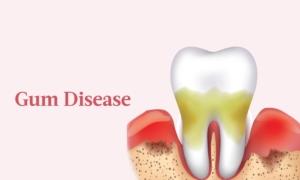Could your toothbrush help maintain a steady heartbeat? Research in the Journal of the American Heart Association indicates a connection between dental health and heart rhythm stability.
Brushing Toward a Healthier Heart
The two-year study, which involved adults undergoing AFib treatment, aimed to investigate the link between oral health and atrial fibrillation recurrence.Before their heart catheter ablation procedures, a dentist evaluated each participant’s oral health using the periodontal inflamed surface area metric, which measures the extent of gum inflammation.
Of the 288 participants, 97 chose to undergo gum disease treatment one and three months after the heart procedure. Treatment included oral hygiene education, deep cleaning with ultrasonic devices and manual tools to remove plaque and tartar, and a concluding polish designed to prevent plaque from sticking again. Those involved in the study continued their prescribed anticoagulation medication throughout the treatment time.
The findings revealed that AFib returned in 24 percent of the participants during the follow-up period. However, those who received treatment for gum inflammation after their ablation procedure were 61 percent less likely to experience a recurrence of AFib than those who did not receive any gum disease treatment.
- Gum disease presence
- An irregular heartbeat history exceeding two years
- A larger left atrial volume, which can predispose individuals to AFib recurrence through the thickening and scarring of connective tissues
“Proper management of gum disease appears to improve the prognosis of AFib, and many people around the world could benefit from it,” Dr. Shunsuke Miyauchi, lead study author and assistant professor at the Health Service Center at Hiroshima University in Japan, said in a statement.
- Obesity
- Inactivity
- Sleep apnea
- Diabetes
- Hypertension
- High cholesterol
- Smoking
- Alcohol or caffeine intake
The Heart–Mouth Connection
Inflamed gums may act as a gateway for bacteria to enter the bloodstream, possibly interfering with the heart’s electrical pathways. The American Heart Association states, “Certain bacteria that live in the mouth can travel through the bloodstream to other parts of the body, including the heart and lungs.”The research revealed that participants with severe gum inflammation exhibited markedly higher blood levels of c-reactive protein and inflammatory cytokines—both indicators of inflammation—than those with less gum disease.
“We are now working on further research to reveal the mechanism underlying the relationship between gum disease and AFib,” Dr. Miyauchi stated.
Optimizing Health Before an Ablation
Cardiologist Dr. Jack Wolfson also said there is a significant connection between oral and heart health.“Before an ablation, addressing dental health alongside other lifestyle factors such as diet, exercise, stress, and sleep is essential,” he told The Epoch Times.
These strategies are pivotal for patients considering this surgical route to heart rhythm correction.
“Optimizing health and tackling inflammation pre-ablation not only boosts the chances of a successful procedure but also helps lessen the radiation’s side effects,” Dr. Wolfson said.







